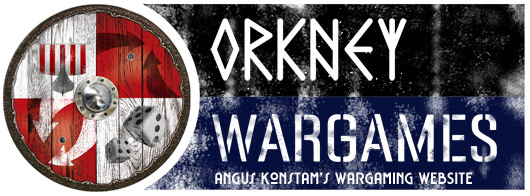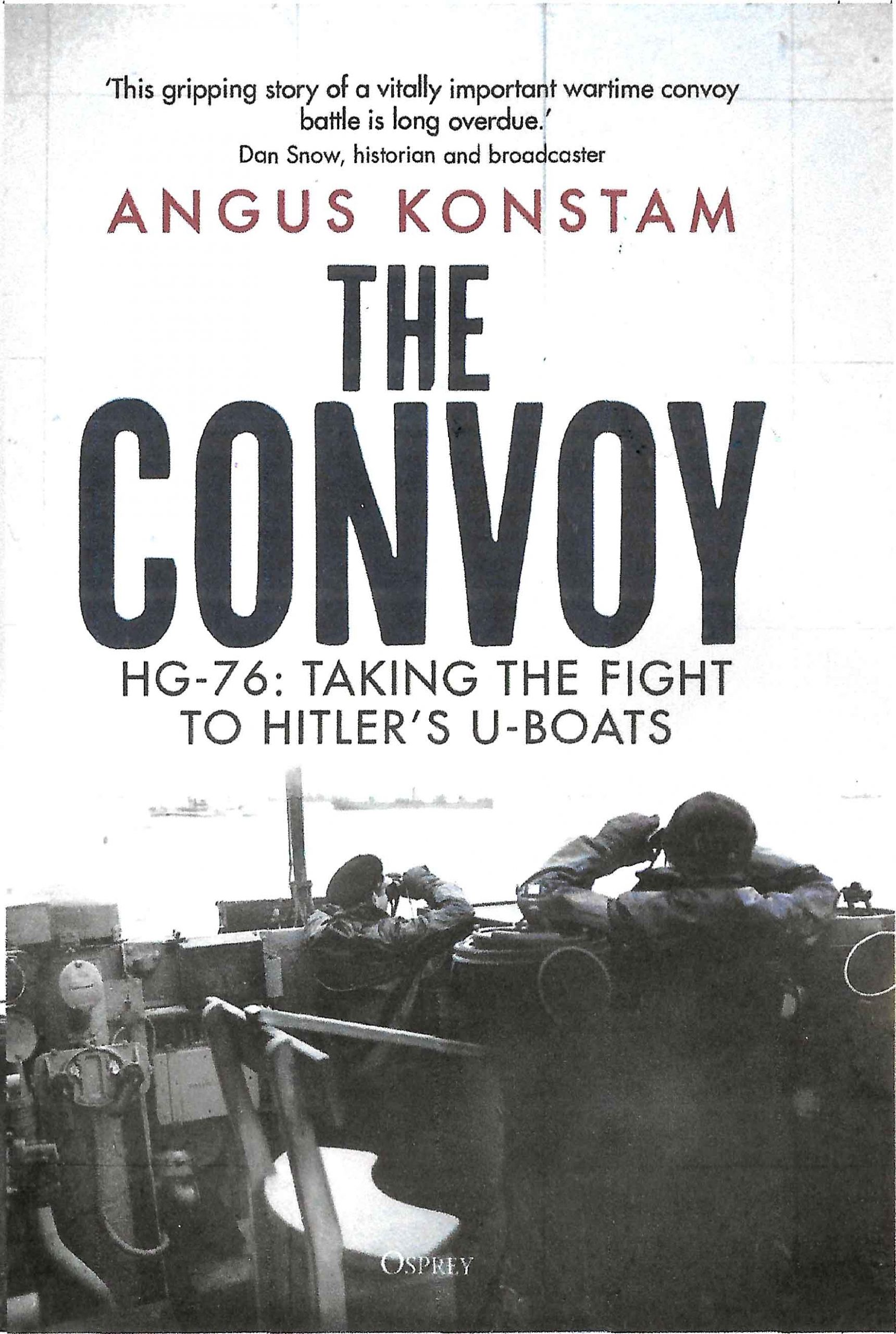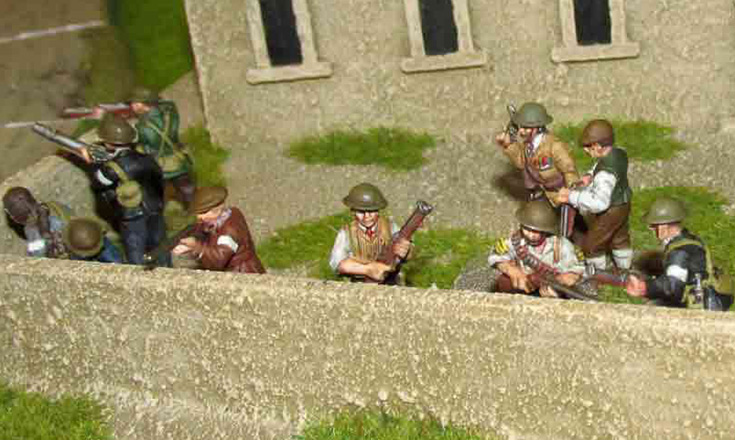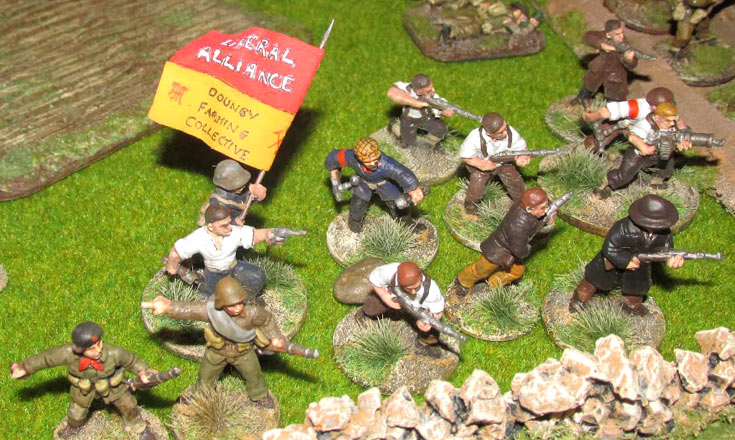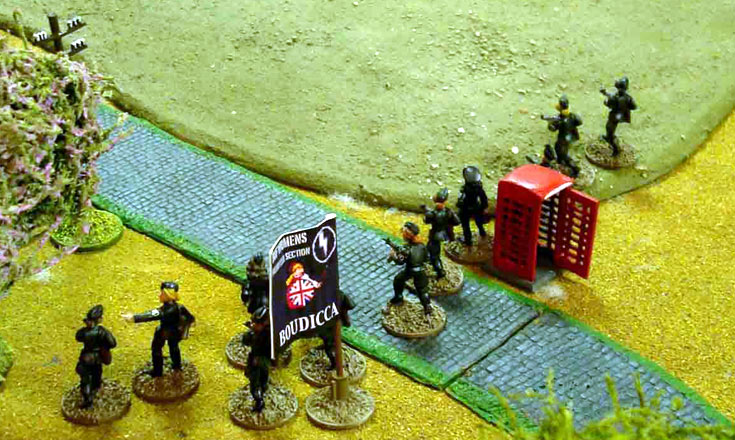
Jedburgh, 1938
9th September 2010, Comments Off
A Very British Civil War, Triumph & Tragedy, 28mm
Colin Jack is nothing if not inventive. Here’s his account of the latest battle in his fictitious “A Very British Civil War” campaign, set in the Scottish Borders in 1938. It seems that in this game the bad guys got a kicking. Anyway, here’s what Colin has to say;  A small Scots force intercepted a much larger invading force between Melrose and Jedburgh on the line of Dere Street and what is now the A68. Either purposefully or by accident they gave the impression that they were fleeing before the invading cavalry and drew them and the following infantry on to their own infantry in hastily prepared positions. Historically the defeated invaders complained that the Scots pikes were 3ft longer than their own and that the sun was in their eyes!
A small Scots force intercepted a much larger invading force between Melrose and Jedburgh on the line of Dere Street and what is now the A68. Either purposefully or by accident they gave the impression that they were fleeing before the invading cavalry and drew them and the following infantry on to their own infantry in hastily prepared positions. Historically the defeated invaders complained that the Scots pikes were 3ft longer than their own and that the sun was in their eyes! Naturally I had not told either Hugh or Bill what battle they were fighting just in case either was familiar with it (quite likely in Bill’s case). Therefore instead of Parthian flight Bill charged the Scots cavalry into the BUF cavalry and lost. Then as the invaders advanced the Scots HMGs failed to register a hit for three turns. As they swept forward it looked as though history was about to be turned on its head. Then the HMGs finally found the range and caused a militia unit to flee.
Naturally I had not told either Hugh or Bill what battle they were fighting just in case either was familiar with it (quite likely in Bill’s case). Therefore instead of Parthian flight Bill charged the Scots cavalry into the BUF cavalry and lost. Then as the invaders advanced the Scots HMGs failed to register a hit for three turns. As they swept forward it looked as though history was about to be turned on its head. Then the HMGs finally found the range and caused a militia unit to flee. Historically the Borderers in the invading army changed sides as soon the first English units began to break and this event was factored into the game as Kerr’s Horse charged into the back of one of the BUF Legions completely destroying it. The second legion stood firm and defeated the Borderers in hand to hand combat but the tide had turned and one by one, under the fire of the machine guns, militia units, many of them foreign, broke and fled. Only two units stood firm to cover the retreat which quickly became a rout.
Historically the Borderers in the invading army changed sides as soon the first English units began to break and this event was factored into the game as Kerr’s Horse charged into the back of one of the BUF Legions completely destroying it. The second legion stood firm and defeated the Borderers in hand to hand combat but the tide had turned and one by one, under the fire of the machine guns, militia units, many of them foreign, broke and fled. Only two units stood firm to cover the retreat which quickly became a rout. The battle was Ancrum Moor fought in 1545 by a Scots force of 2,500 under the Earl of Angus and an “English” force of some 5,500 comprising 3,000 foreign mercenaries (possibly landsknechts), 1,500 English and 700 Scots borderers. Sir Laiton and Sir Ewer, the commanders of the two English battles were both killed along with 600 of their force. A further 1000 were taken prisoners. Scottish casualties were negligible.
The battle was Ancrum Moor fought in 1545 by a Scots force of 2,500 under the Earl of Angus and an “English” force of some 5,500 comprising 3,000 foreign mercenaries (possibly landsknechts), 1,500 English and 700 Scots borderers. Sir Laiton and Sir Ewer, the commanders of the two English battles were both killed along with 600 of their force. A further 1000 were taken prisoners. Scottish casualties were negligible.
ote fr
